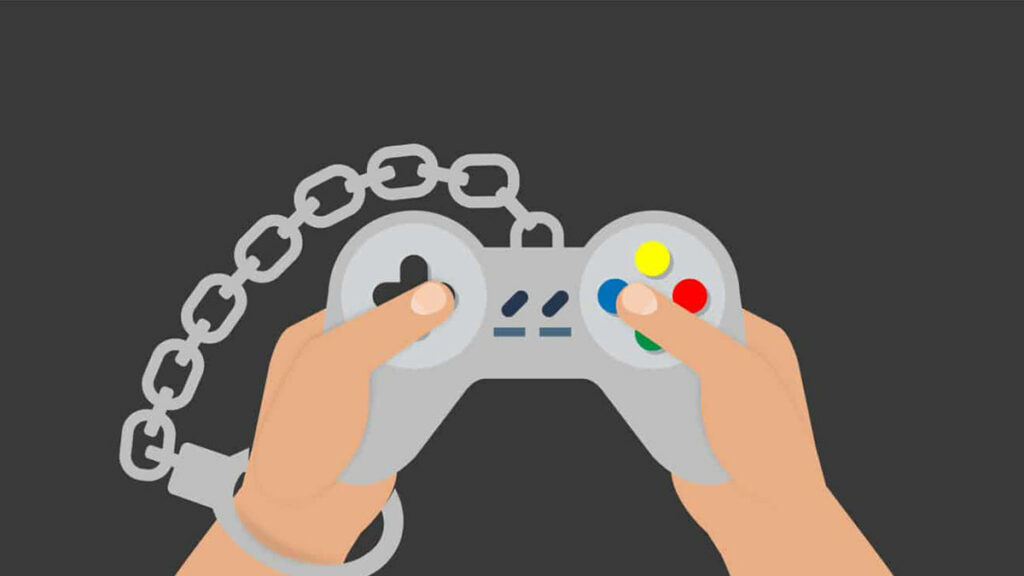
8 Steps To Cure Male Loneliness
Men are lonelier than ever. In fact, their lack of social contact has been described as a male loneliness epidemic. This is exacerbated by men increasingly turning to technology for entertainment and connection rather than ‘third spaces’ like coffee shops, bars, clubs, gyms, sports teams, public parks, theaters, etc.
At Game Quitters, we’re often approached by gamers who are tired of their solitary existence. Usually, gaming started off as one of several hobbies and activities they enjoyed, but it has completely consumed their lives, leaving no time for anything else. And they’ve perpetuated the cycle of loneliness by further escaping into video games to deal with it. In this article, we explain how to fix male loneliness with practical solutions for a more fulfilled and sociable life.
How to combat loneliness
These tried and tested ideas will help you or a loved one to make new connections, build meaningful relationships, and overcome isolation.
1. Talk to someone
If you’re feeling lonely and low, bottling it up will only make things worse. Talk to a friend, family member, or another person you trust. If you don’t have anyone you can speak to, book an appointment with a counselor or therapist for confidential support and advice. Being open and honest about your feelings will help you make sense of things and understand yourself better. It’s the first step to recognizing unhelpful patterns of behavior and finding ways to change them so you feel less lonely.
2. Get out of the house
Spending hours on your own will only worsen feelings of loneliness and isolation. Try to leave the house every day and talk to people you come across, even if it’s only saying hello to a neighbor or supermarket cashier. If this seems too much to start with, simply being around other people may help you feel less alone. Rather than working or studying at home, could you go to a coffee shop or library? If you visit the same place at the same time each day or week, you may start to recognize people, which could lead to conversations and new connections.
3. Meet likeminded people
A common misconception about loneliness is that the person affected has no social contact or support. In fact, it’s possible to be lonely around friends and family if you don’t feel heard or understood. Whether you have an existing network or not, try making new friends with a similar outlook if you feel isolated and alone. Sites like meetup.com are a great way to connect with likeminded people, ideally face to face, or join a local club or society to meet others with similar interests.
4. Get active
Exercising is a great way to meet other people, whether at the gym, pool, fitness class, or sports club. But remember to leave your headphones at home! If you haven’t been active for a while, perhaps start by walking in your local area. You could borrow a friend or neighbor’s dog to take with you—it’s a great conversation starter with other pet owners. Lonely people are more at risk of high blood pressure, heart disease, and obesity, so as well as providing conversation and company, getting active is good for your physical health too.
5. Do some volunteering
Volunteering is known to boost emotional well-being and reduce the risk of depression and other mental health problems. It can provide a real sense of purpose and belonging that may be missing from your life. You’ll feel valued and appreciated by doing something worthwhile for others. Getting involved weekly or monthly will enable you to build meaningful connections that may develop into friendships over time. You could volunteer locally, or if you’re feeling adventurous, there are volunteering opportunities at programs, projects, and NGOs worldwide.
6. Find new hobbies and interests
One of the best ways to feel less lonely and bored is to find some hobbies and interests where you can socialize. After so much time spent alone, this may seem daunting, so you could start by trying an activity where other people are present but you don’t have to interact too much if you don’t want to, like rock climbing, surfing, or a drawing class. For some activities, you could just watch at first rather than taking part. Find environments where you feel comfortable, and try not to put too much pressure on yourself. If you’re stuck for ideas, check out our hobby tool for inspiration.
7. Reduce social media use
Social media creates an illusion of socializing, but it really just extends your ability to spend more time alone. Work out which platforms are replacing your urge for real-life social interactions by creating a false reality. You can then either moderate your social media use to a healthy level or quit some or all of these sites completely. Another negative aspect of social media is FOMO.
Watching other people live their ‘perfect’ lives on Instagram, TikTok, Snapchat, etc. can make you feel even worse about your solitary situation. By getting offline, you can start focusing on your own relationships and activities rather than the unrealistic lives of others.
8. Get your gaming under control
Do you play video games? Like social media, they can create a false impression of socializing, especially massively multiplayer online (MMO) games. Usually other players are acquaintances, and there’s no substance to these relationships, but for males who have no one else in their lives with shared interests, these connections can be their only social contact.
Those who prefer single-player games can quickly become isolated and lonely, and this perpetuates the cycle of loneliness as they further escape into video games to deal with it. Both types of video games can hijack the brain’s reward system and become addictive, which creates another problem apart from loneliness – gaming disorder. The first step to getting gaming and the associated loneliness under control is recognizing the signs of video game addiction. From there, specialist help is available from Game Quitters.
Need help?

If gaming is taking over your life and making you lonely, it’s possible to change. You’re not alone, and we can help.
Take the first step today and apply for a Gameplan strategy call to see if you’re a good fit for our coaching program.
After the 12-week program, you’ll be free of your gaming problems and pursuing real-life goals—like studying, exercising, earning money, finding new hobbies, and meeting new people—that will help cure your loneliness.
It’s worked for others, and it can work for you. See reviews of Game Quitters.
“I feverishly looked for answers to help my son who was lost in video games. To watch him go deeper into the pit of isolation, and his resulting loneliness due to gaming was killing me as a parent. With Cam and Game Quitters I found an action plan to help him, and now he’s game free, making new friends and doing activities.” – Sherry
